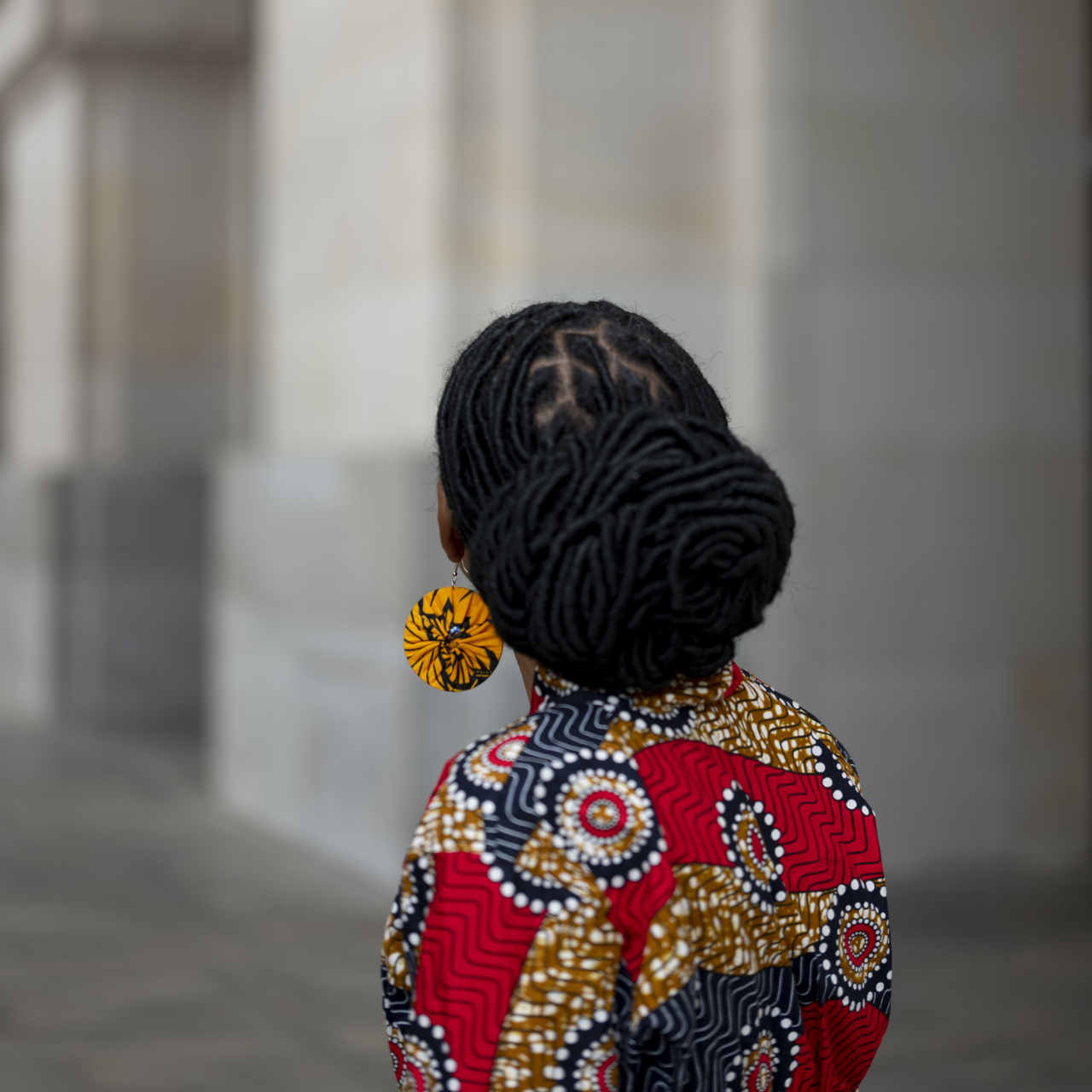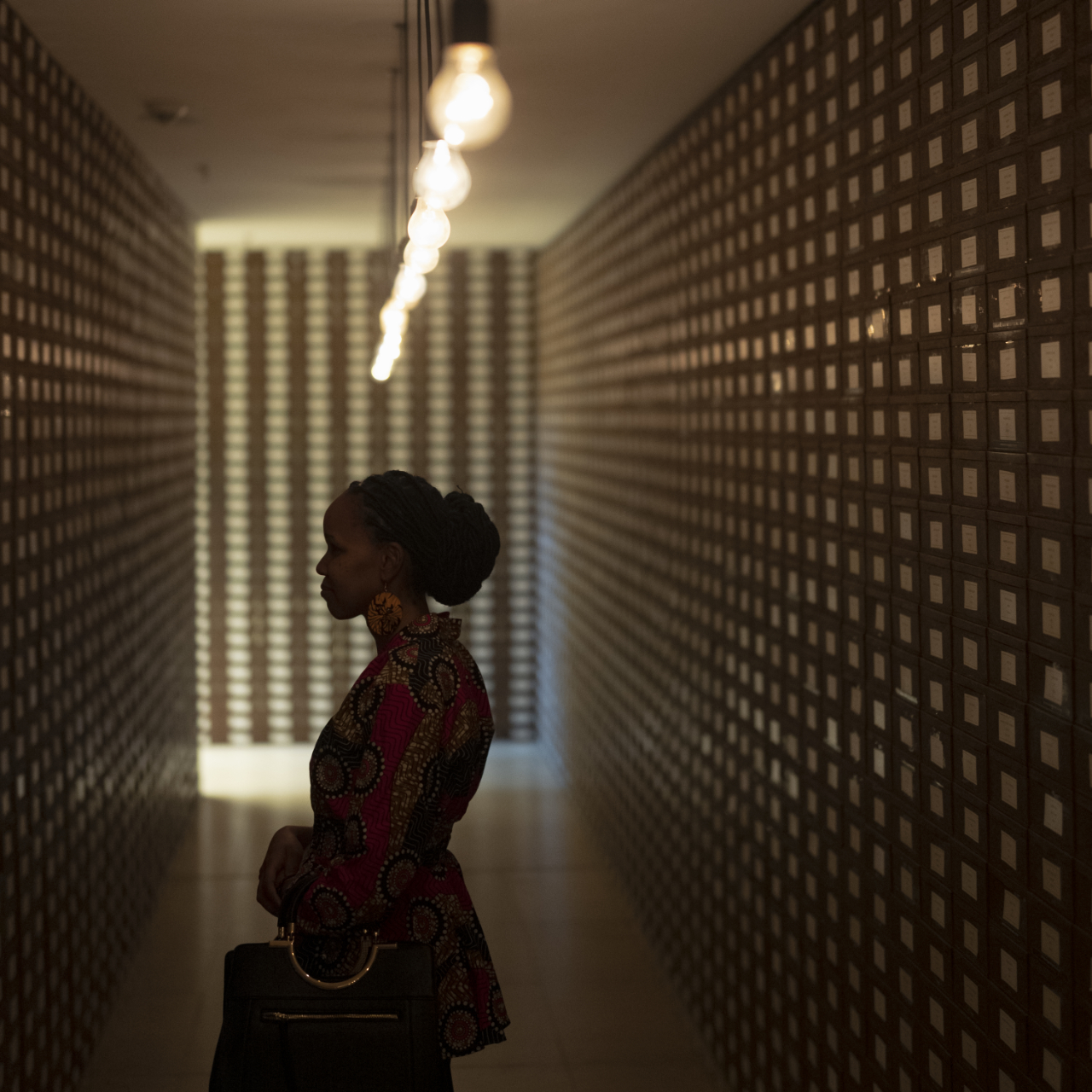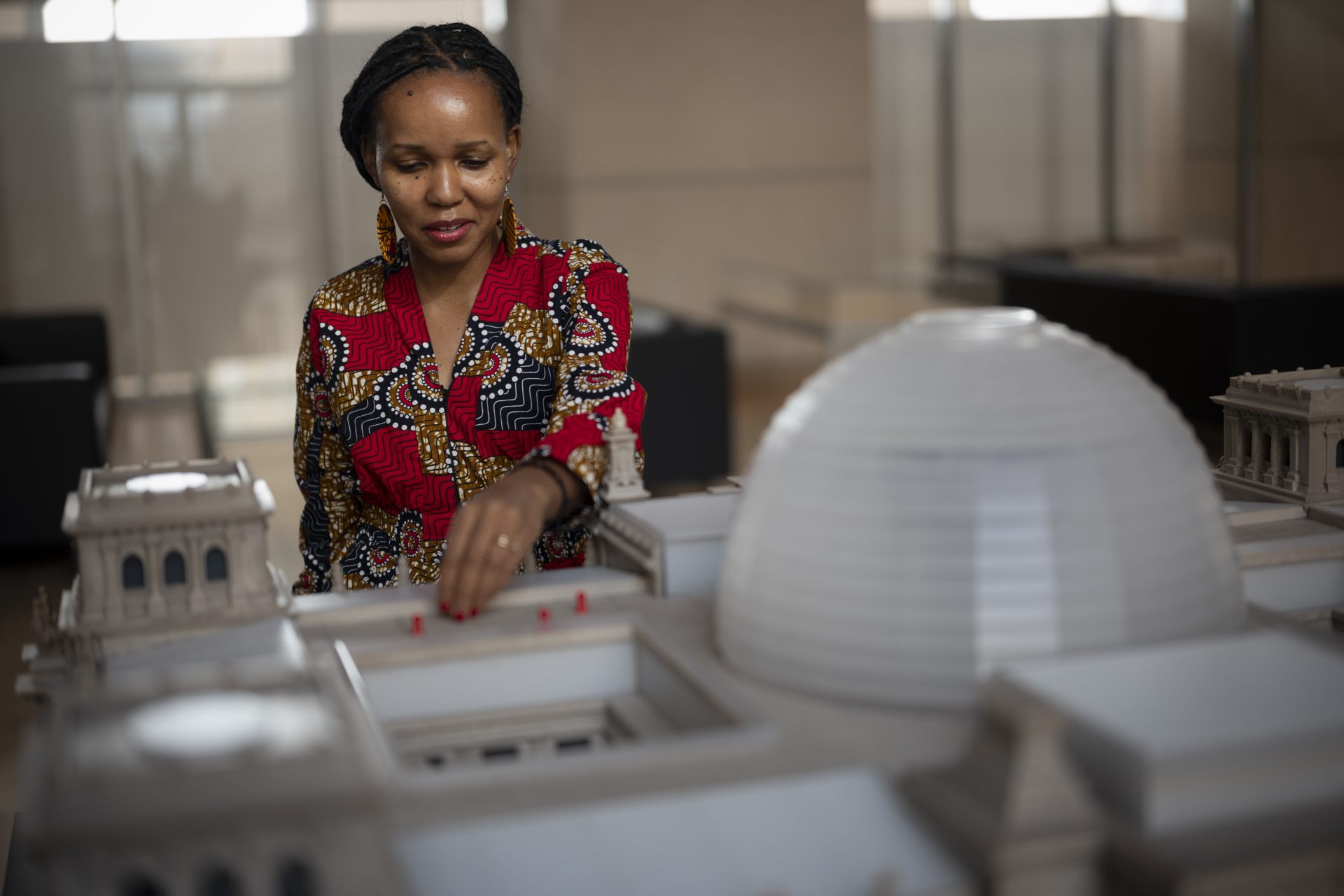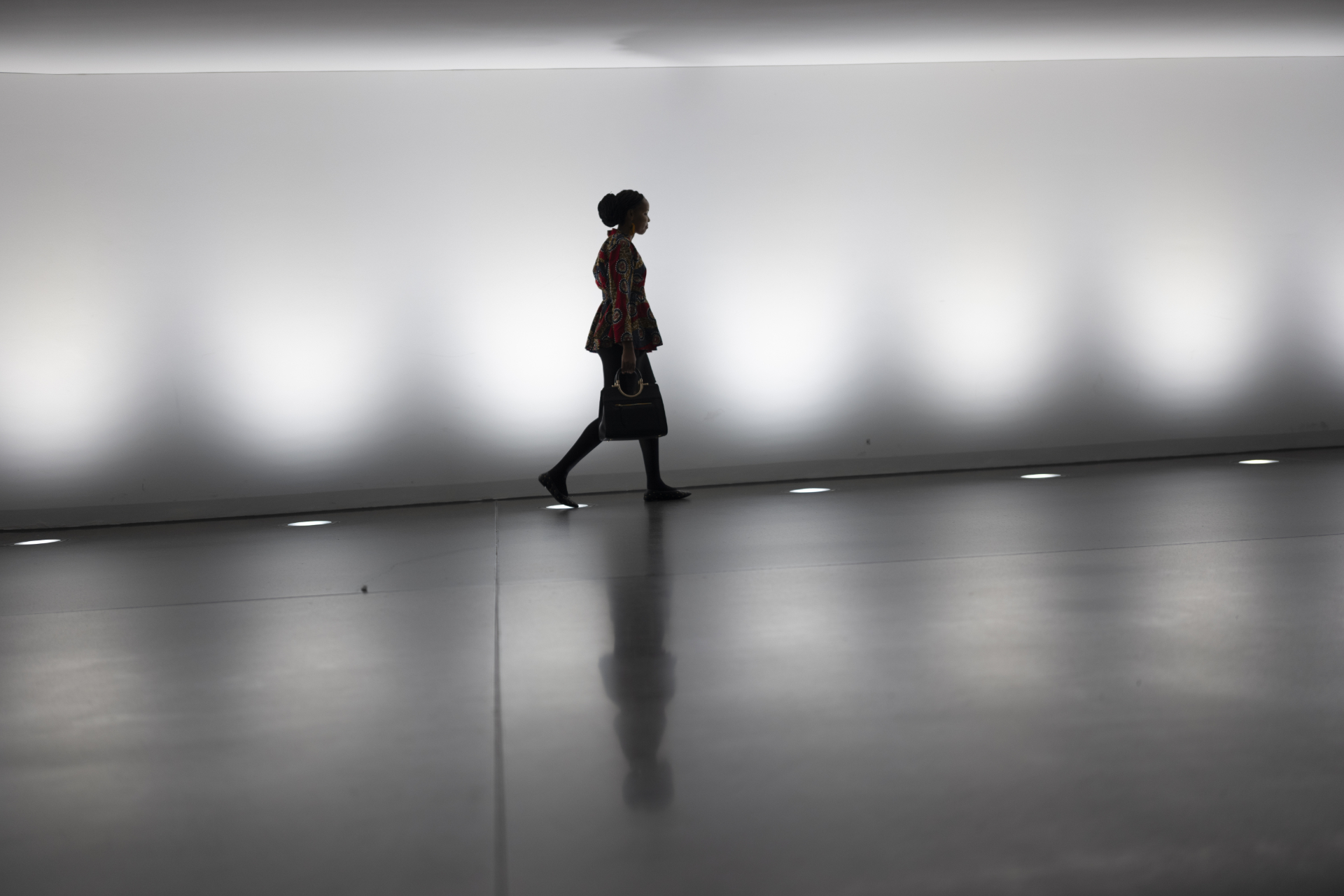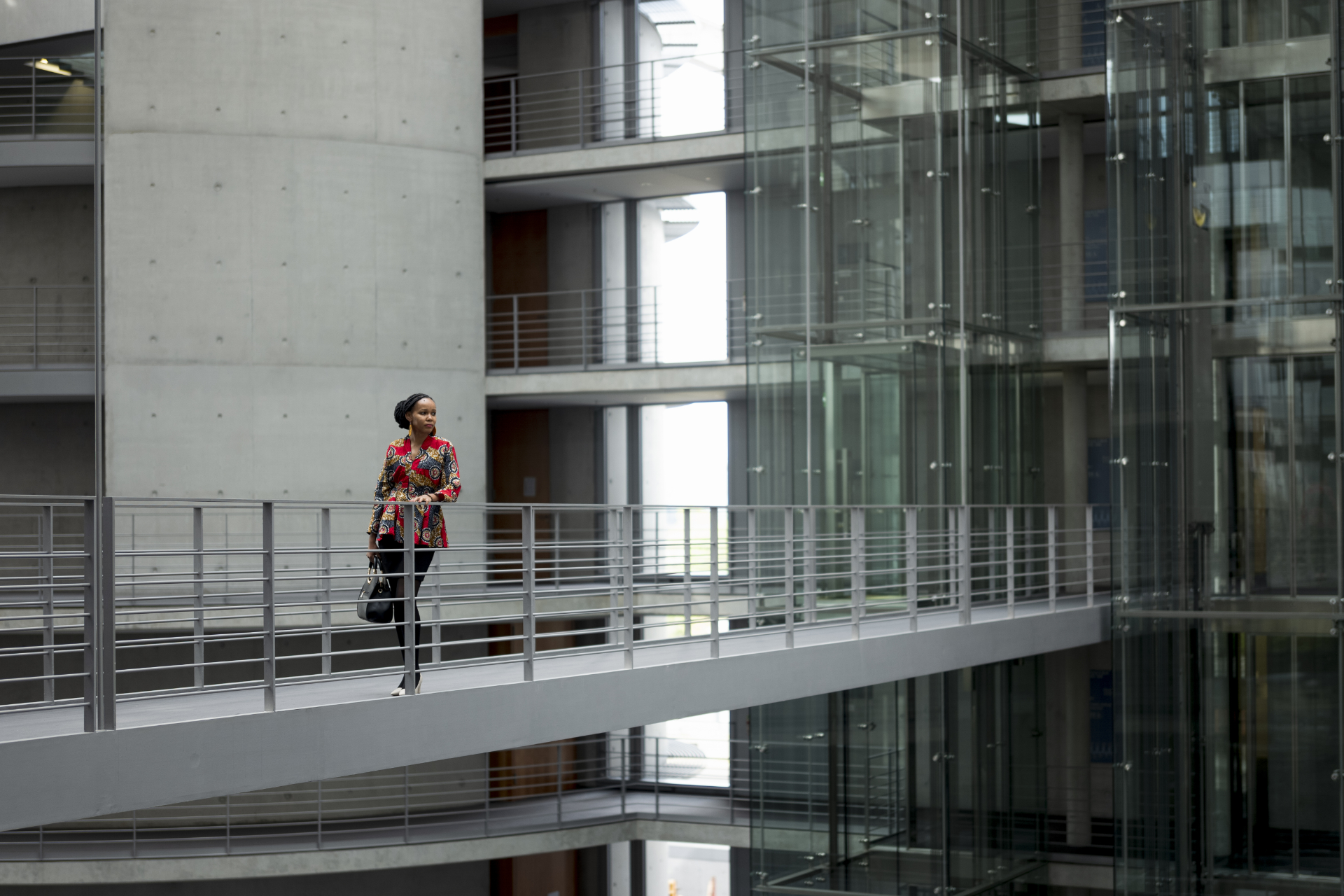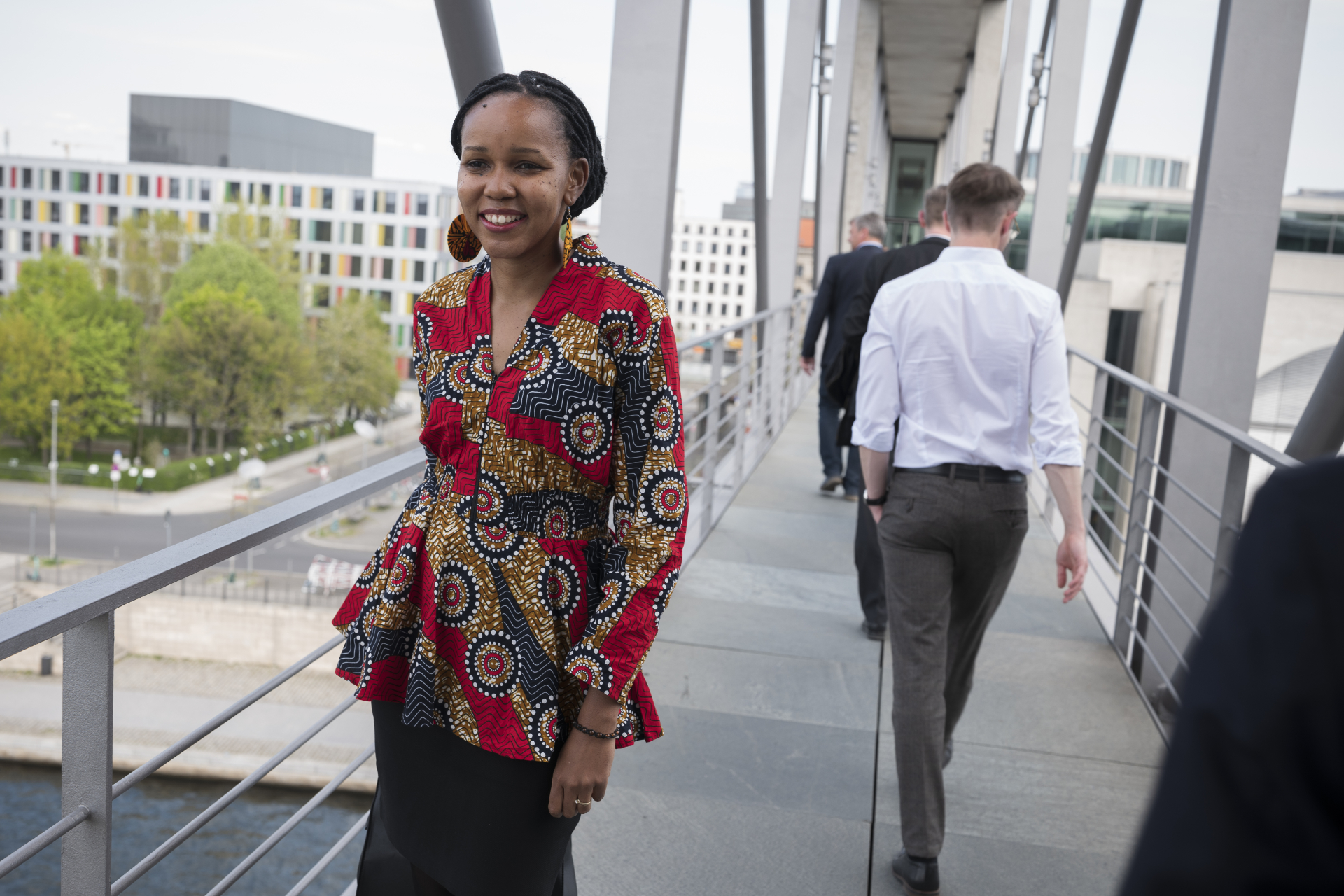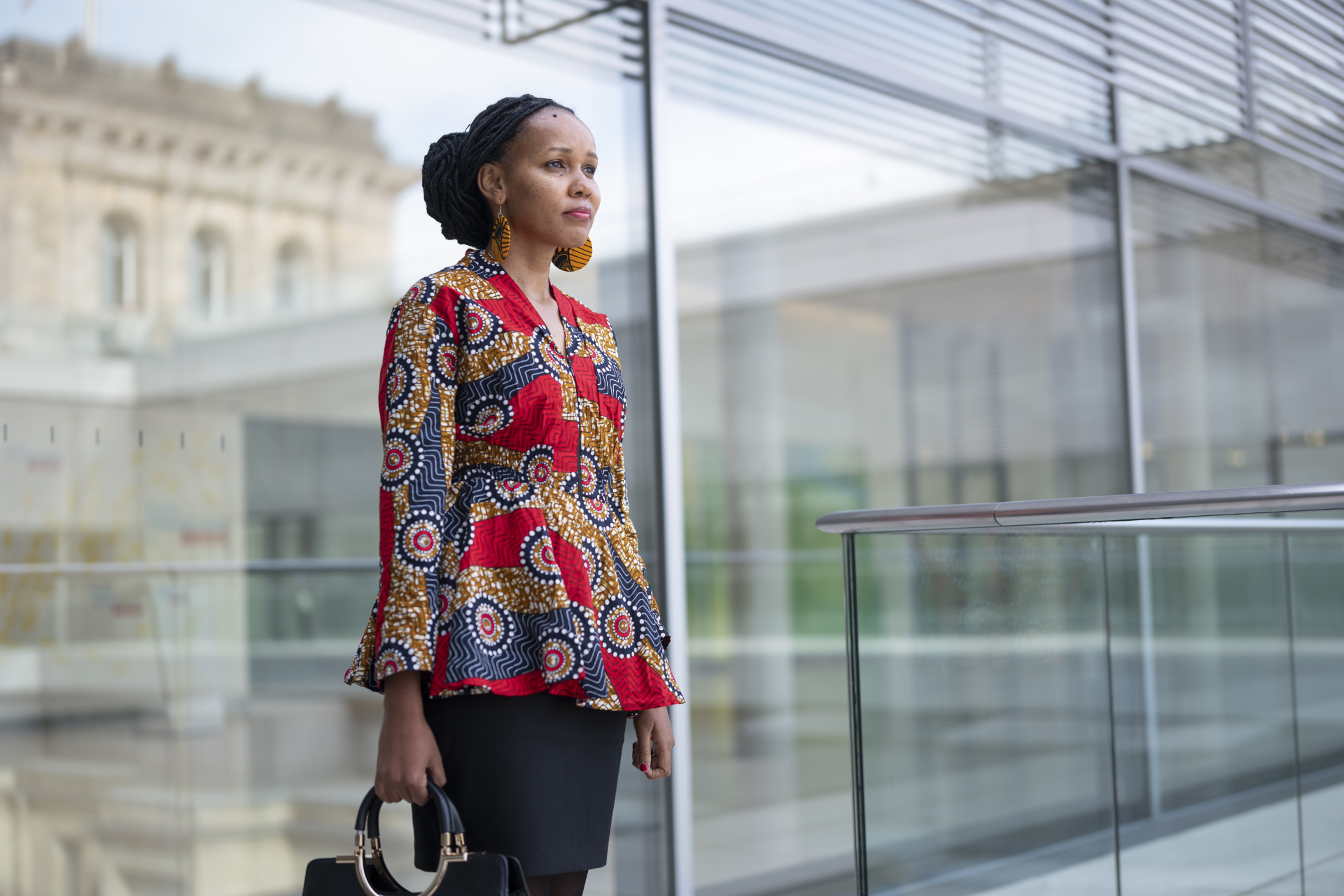Issue 17 / June 2022
“The informal has been formalized“
Alexandra Kemmerer
Nkatha Kabira examines the legal techniques of African governance and promotes a critical renewal of law in scholarship as well as in practice
Alexandra Kemmerer: Due to Corona restrictions, we are not able to meet in person at the Wissenschaftskolleg for this interview today. In fact, you are still in Nairobi…
Nkatha Kabira: Yes, I am teaching right now. Lectures are now physical after the Corona restrictions have been eased! The first year class that I am teaching today is a moot court, a simulation of a courtroom for the students. They are really enjoying dressing like lawyers, learning how to speak like lawyers, in simulations of proceedings both in local and international courts. They learn how to conduct research, how to be good writers, and how to analyze and then argue cases. We give them a question, a case, and then they have to go, and they come up with teams and argue against each other. It’s quite amazing. I really, really enjoy watching them learn how to do research, and to see them coming from being too afraid to speak up to being able to speak in public and really argue and persuade. And I am really happy about the opportunity to teach our students how to moot because I feel like we have very few African lawyers who go to argue in international courts, or even in regional courts. Quite often we end up having lawyers from England or from the US representing Africans in the courts. I hope that training our students helps ensure that they have more confidence and that they are able to argue cases, and to argue for the country and appear before international courts as well.
AK: How and where did you study law?
NK: I did my undergraduate education at the University of Nairobi. Actually, I am now teaching at the place where it all began. While in Law School, I worked as a researcher in the Constitution of Kenya Review Commission which was tasked with the making of a new Kenyan Constitution, and that really struck my interest for understanding transdisciplinary approaches to the law, thinking about law, about africanizing, indigenizing the law and thinking about transformative approaches to the law. By the time I was going to Harvard I was already very curious about how the law might intersect with other disciplines and how it might help us better understand the kind of situation we find ourselves in African social-political contexts. For the most part, legal education in Kenya has been focusing on British legal thought, we study many of the cases taught in England, we study the history of law in England. Therefore, the challenge we have had in our educational system is the fact that it has not been responsive to African social-political realities. We learn all these Latin words: contra bonos mores, res iudicata, quicquid plantatur solo, solo cedit – all these terms. On the ground, nobody really understands what it is all about. I know that’s a problem in many parts of the world. So, by the time I went to Harvard I was already bothered by the fact that our educational system does not mirror or doesn’t respond to the realities on the ground. Also because symbolically, we continue to carry on the tradition of wearing the black robe, and we are wearing the white powdered wigs. Do you wear those wigs in Germany?
AK: No, we don’t have them. I think we did not have them for centuries. But in the courtroom, attorneys and judges and court clerks are still wearing black robes, that is mandatory.
NK: In many parts of Africa, they still wear the robe and the white powdered wig, and, you know, it’s such an irony – especially because it’s so, so hot, and then you wear the wig (laughs)… But it’s also symbolic of the knowledge we are carrying. You are speaking the Queen’s English, mixed with Latin, and then you are dressed in something that is so far removed from the realities on the ground… I was bothered by that. And when I studied for my master’s degree – I studied international human rights and international law at Harvard Law School – I was exposed to social theory, critical legal thinking, critical political thought, political economy. I loved learning about critical approaches to international law, postmodernism, all of this. One of the things I realized is that critique doesn’t really travel. As Edward Said, one of my favorite theorists, says: theory travels, but the critique remains at home. We in Africa received all these theories from western political thought, starting from Aristotle and Plato, all these western political philosophers, but the critique didn’t travel with the theory. The educational system in many African countries continues to resonate with 18th-century or 19th-century philosophical thought, but not with the evolution of that particular thought as a result of critique. And then I went to Harvard and I did my PhD with Janet Halley, Duncan Kennedy, David Kennedy, and Sally Falk Moore for another seven years. It was a total of about nine years of my being in Cambridge, really reveling in knowledge and enjoying learning about anthropology and linguistics and politics and economics, and even philosophy – that was really cool.
AK: The disconnect of a traditional legal education and the realities on the ground in Kenya resonated with the critical legal studies movement that you encountered at Harvard. How did that encounter inform your PhD work?
NK: I studied commissions. And the reason why I studied them was because there had been so many commissions that have been written about. In Africa we have a commission for everything: education policy, ethnic violence, salaries, public health, food security, regulation of labor relations, corruption in government, national and social cohesion, constitution making, land, unlawful killings… Every time there is an issue, a commission is set up to investigate the issue on the ground. And because of that there are so many reports about all kinds of areas; they can be found in the National Archives, all over the place online, so I found them to be an excellent tool to study law, to study how law has evolved over time, to study the encounter between African law and western law, the encounter between different kinds of pluralistic traditions, the encounter between the national and the international, the global and the local, multiple ethnic groups, multiple religions, how they deal with different kinds of issues. That is where it all began, that’s where the magic began. The magic of studying all kinds of challenges that we face in Africa, and then using commissions as a tool to help us see the disconnect between the law on the ground, or the law in action, and the law in the books. The law as written in the statute, in the constitution versus the voices of the people that you can hear through the commission reports, through the verbatim records of what they said the problem was. I studied commissions as instruments of governance in Kenya and I looked at how commissions had mediated multiple conflicting interests in many parts of Africa – the conflict between individual rights and communal rights, the conflict between formalism and informalism, conflicts between the law in the books versus the law in action. The critical legal tradition really gave me the tools that I needed to better understand the technologies of governance, the technologies of law, and the kind of law that was beginning to emerge in many parts of Africa as a result of the encounter between western political thought and African political thought, and the bricolage that was being made as a result of that union between the two.
AK: How does that bricolage then relate to the institutionalized system? Commissions provide an informal frame for dealing with issues that you either don’t want or just can’t deal with in an institutionalized system. But the challenge is to take that bricolage of diverse normative understandings and legal traditions and theoretical traditions of law and practice – to take it and bring it back into the court system. How does that work?
NK: That’s a beautiful question. What happened in Kenya, and maybe South Africa and Zimbabwe and many other African countries, is that that bricolage has been made part of the constitutional framework. The 2010 Constitution of Kenya, for example, ended up recognizing that there are multiple forms of law. Whether it is customary law, international law, statutory law, or English law, all of that becomes part and parcel of the sources of law in Kenya, by virtue of article two of the constitution. This was possible because the commission process which resulted in the making of the Constitution of Kenya made those kinds of proposals. Because it is important for the Constitution of Kenya, or the laws of Kenya, to reflect the reality on the ground – the multiplicity and the plural kinds of laws and norms that exist. The other thing that happened is that the Constitution ended up institutionalizing the commission as an institutional frame, as a governance framework. In fact, my work tells the story of how commissions came to occupy a central place in governance. The Kenyan Constitution actually has 15 constitutional commissions which are permanent structures. We have a commission for every area that has historically been contentious. We have one on land, on elections, on salaries, on boundaries etc. There are people who argue that commissions in Africa are the fourth arm of government besides judiciary, executive, and legislature. They are trying to deal with the multiplicities in different ways, so for example in terms of the appointment of the commissioners one of the things that the law requires is that they come from different backgrounds, different ethnicities, different religions, so that the composition of the commission has a wide range of actors. It is true, though, there’s continual tension. One of the articles that I have written is on the enduring tensions which have been constitutionalized. And you are absolutely right, what has happened is that the informal has been formalized, tradition has been formalized, and international law has been formalized, alongside culture and tradition. On the one hand, you say that the law allows traditional practices such as female genital mutilation (FGM) for example, but then there is international law which is also a source of law, and the Maputo Protocol or even the Convention on the Elimination of All Forms of Discrimination Against Women (CEDAW) talk about women’s rights and this culture being repugnant to justice. There is another piece that I have written called “Wanjiku and The Wig: Kenya’s Legal Transformation Dance” which mobilizes those two ideas, these two modes of socio-legal consciousness. Wanjiku is the voice of the people, the wig is the voice of the lawyer, and I talk about it as a dance where there’s a constant struggle to try and find the conciliation between the two. Sometimes the wig wins, sometimes Wanjiku wins – which means that sometimes the voices of the people triumph, sometimes formalism wins. It is the bricolage of that dance or that encounter that helps us understand the kind of law that is in operation in African social-political contexts. And then what happens is that with the commissions and the requirement for public participation which ensures that the voices of the people are heard we have different kinds of tools, different kinds of ideas which are brought to the table. New ways of dealing with problems come into play, for example traditional forms of dealing with climate change, traditional forms of dealing with environmental governance as opposed to just an international framework which does not always resonate with what the local people are dealing with.
AK: A traditional dance, of course, is not only pure joy, it is a serious matter, has ritualistic aspects, but it is also an aesthetic and ultimately creative process. At the very end of your project description for Wiko, you say “the future of law in Africa lies in unpacking, understanding, and unraveling the law of commissions.” So there is really much hope and optimism…
NK: Absolutely!
AK: Would you say that there are major differences when you look at various African regions? In your research, when you look at South Africa and probably also at other parts of Africa beyond Kenya, are there different dynamics at play?
NK: That’s another excellent question. And in fact my project at the Stellenbosch Institute for Advanced Study (STIAS) focuses on looking at that comparative analysis, seeing what’s happening in South Africa, Ghana, and Nigeria. What I can say is that I can definitely see some similarities. I can see the same kind of story emerging with what I call “pro-commissionism” versus “anti-commissionism.” And that’s actually a global thing, I think. Historically, in Canada and Australia, in the US, there has been a major critique of commissions: claiming that they do nothing. And then I do see another kind of story coming out which is the pro-commissionism, these people can see something emerging out of the discourse that commissions have been able to produce. I see it in South Africa, when they talk about the Truth Commission for example, and in Ghana with the many commissions including the Constitutional Commission which led to the changes with their constitution. The same thing with Zimbabwe. And Nigeria has so many commissions! Same criticisms, but also the people who see that there might be something happening. So, I do see two narratives constantly at play in most African countries. The question is: Despite the criticism directed against commissions, why do we continue to have them? And why do governments the world over continue to establish so many commissions? What gap are they filling? What is it that they are doing that they are constantly on the table as an option of what needs to be done? And the other thing is that the constitutionalisation of commissions is something that has been very prominent in African countries. I haven’t seen it as much in other parts of the world – maybe in Asia, but most permanent commissions which have been constitutionalized have been a creature of African governance, for example land. Land continues to be at the center of many of the contentious issues in relation to governance in many African countries. Or even the Electoral Commission. I think almost every African country has a constitutionalized elections commission, and we know that elections in many parts of Africa historically coincided with incidents of widespread political and ethnic violence.
AK: How do your students react to this topic? Is the topic of commissions a new course in the curriculum, or was it standard at your law school before?
NK: It’s completely new, it’s the first time we’ve taught it. I proposed the new course after my PhD as soon as I came back from Harvard, and it wasn’t easy, but they accepted the importance of the course and can see the relevance now. Students really enjoy it because we are covering something that is so real to us. By studying commissions, we are studying our everyday governance problems. Commissions are really a fantastic tool, a great lens to help us study law in Africa, to study governance in Africa.
AK: Is that “the future of law” that is so prominent in your research profile?
NK: “The Future of Law in Africa” is a project that I started as an international research collaboration within the Law and Society Association. In 1960, there was a conference with the same name and we are reviving that moment by asking the same questions today that were asked in 1960. According to the 1960 conference, law in Africa was supposed to be more formal and positivist and then unified – but what we’re seeing with our current transdisciplinary approaches to law and turning to the connections between law and politics or economics, is a kind of rupture, a shattering of that vision of the 1960 conference. That’s what we’re working on by planning a renewed conference to revisit those questions with people from all over Africa and see where we’re going with the law and most importantly, the place of commissions in the future of law in Africa. I love those kinds of questions about the future.
More on: Nkatha Kabira
Images: © Maurice Weiss
